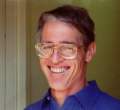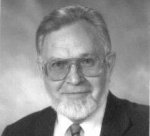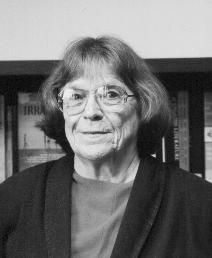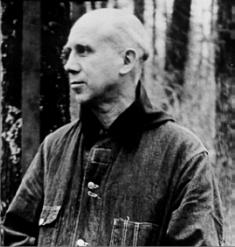- Dr. Robert Jastrow
 American astronomer and physicist. Founding director of NASA's Goddard Institute for Space Studies. When I was 12-14, I would get up at 5:30 am to watch him on Sunrise Semester. Jastrow would sit at a little desk in the middle of a stage and talk about physics, astronomy, satellites, etc., using a large paper flip chart and a black marker as his only multimedia devices. To me it was fascinating. From that time on I wanted to be a physicist, or an astronomer, or a rocket scientist. Alas it did not turn out that way. I had to settle with becoming a philosopher by training and avocation, and an autodidact computer engineer...or something, for my vocation. In his later years, among other things, he was concerned with the relationship of science and religion. American astronomer and physicist. Founding director of NASA's Goddard Institute for Space Studies. When I was 12-14, I would get up at 5:30 am to watch him on Sunrise Semester. Jastrow would sit at a little desk in the middle of a stage and talk about physics, astronomy, satellites, etc., using a large paper flip chart and a black marker as his only multimedia devices. To me it was fascinating. From that time on I wanted to be a physicist, or an astronomer, or a rocket scientist. Alas it did not turn out that way. I had to settle with becoming a philosopher by training and avocation, and an autodidact computer engineer...or something, for my vocation. In his later years, among other things, he was concerned with the relationship of science and religion.
- Dr. Leon Mattics
 Although number theory was his specialty, he could teach anything mathematical. I was in one of the first classes he ever taught to undergraduates, at least at USA, a course in Linear Algebra, as I recall. (The class consisted of myself and two other very worried students.) Having gone to the University of Montana on a football scholarship, but becoming injured his first year, he nevertheless showed his athletic background in the way he lectured. When he got warmed up to the subject of the day he would veritably run from one board to the next, punctuating his points by slapping the blackboard like a painter slapping paint on a canvas, his paint being chalk and his visions equations. The flying chalk dust filled the air and formed semicircles upon his coat and pants pockets. After thoroughly overwhelming us with mathematical insight none of us could entirely absorb, to say the least, he would finish class by thanking us for being there, like an artist thanking people for attending his exhibition. We left class exhausted. Although not so energetic as he, some of my teaching style (whiteboard marker stains replacing the chalk dust) is certainly derived from his. Oddly, it was from Dr. Mattics that I first heard the name Albert Camus. Camus' books would come to make a great impression on me. Dr. Mattics died Oct. 6, 2020. Although number theory was his specialty, he could teach anything mathematical. I was in one of the first classes he ever taught to undergraduates, at least at USA, a course in Linear Algebra, as I recall. (The class consisted of myself and two other very worried students.) Having gone to the University of Montana on a football scholarship, but becoming injured his first year, he nevertheless showed his athletic background in the way he lectured. When he got warmed up to the subject of the day he would veritably run from one board to the next, punctuating his points by slapping the blackboard like a painter slapping paint on a canvas, his paint being chalk and his visions equations. The flying chalk dust filled the air and formed semicircles upon his coat and pants pockets. After thoroughly overwhelming us with mathematical insight none of us could entirely absorb, to say the least, he would finish class by thanking us for being there, like an artist thanking people for attending his exhibition. We left class exhausted. Although not so energetic as he, some of my teaching style (whiteboard marker stains replacing the chalk dust) is certainly derived from his. Oddly, it was from Dr. Mattics that I first heard the name Albert Camus. Camus' books would come to make a great impression on me. Dr. Mattics died Oct. 6, 2020.
- E. Lewis B. Curtis
 Mr. Curtis (who had more learning in his little finger than a sack full of Ph.D.'s) was history professor at University of South Alabama. He had lived and travelled the whole world over. My only course from him was Greek History, which I took twice I enjoyed it so much. He gave you the feeling of the meaning of the love of history by giving you insight into the people, the geography, through his own experience. When he spoke of the Aegean Sea, and of how its surface, unlike that of the Mediterranean, was often smooth as glass, it was from having lived and taught in Greece and Turkey. He and his wife Catherine were very kind to me. He loved Loeb Classical Lirary books and had hundreds. At home he had an old barbers chair with a custon book holder attached for reading. Through him the minds of Thucydides and Herototus came alive. One of the people who sat on his examining board for his master's at University of London was Arnold Toynbee, author of the epic "A Study of History." Mr. Curtis (who had more learning in his little finger than a sack full of Ph.D.'s) was history professor at University of South Alabama. He had lived and travelled the whole world over. My only course from him was Greek History, which I took twice I enjoyed it so much. He gave you the feeling of the meaning of the love of history by giving you insight into the people, the geography, through his own experience. When he spoke of the Aegean Sea, and of how its surface, unlike that of the Mediterranean, was often smooth as glass, it was from having lived and taught in Greece and Turkey. He and his wife Catherine were very kind to me. He loved Loeb Classical Lirary books and had hundreds. At home he had an old barbers chair with a custon book holder attached for reading. Through him the minds of Thucydides and Herototus came alive. One of the people who sat on his examining board for his master's at University of London was Arnold Toynbee, author of the epic "A Study of History."
- Dr. Larry Holmes
 I took Dr. Holmes' History of the USSR. He was a brilliant scholar and teacher. I still remember quite a bit of Soviet history from that course. More than that, I learned how scholarship could be lived passionately. He was one of the most striking lecturers I have ever known. I recall that he always made his points vividly and then gave you a moment to absorb what he said. He remarked about Soviet historians of the 60's that they had a "methodology" for delivering their research such that they would get to a lecturn, recite a list of raw data and then sit down, letting the audience draw their own conclusions. At the time, of course, it was politically dangerous to be critical of this or that government policy, and even if it was historical data they were reciting, one never knew who might be offended by one's conclusions. He had an impressive Nietzsche-like mustache when I was taking classes with him. Here is one of his books, listed on Amazon. He died in 2022, in Russia doing research for another book, at 80. Here is an obiurary. I took Dr. Holmes' History of the USSR. He was a brilliant scholar and teacher. I still remember quite a bit of Soviet history from that course. More than that, I learned how scholarship could be lived passionately. He was one of the most striking lecturers I have ever known. I recall that he always made his points vividly and then gave you a moment to absorb what he said. He remarked about Soviet historians of the 60's that they had a "methodology" for delivering their research such that they would get to a lecturn, recite a list of raw data and then sit down, letting the audience draw their own conclusions. At the time, of course, it was politically dangerous to be critical of this or that government policy, and even if it was historical data they were reciting, one never knew who might be offended by one's conclusions. He had an impressive Nietzsche-like mustache when I was taking classes with him. Here is one of his books, listed on Amazon. He died in 2022, in Russia doing research for another book, at 80. Here is an obiurary.
- Dr. Robert L. Perkins
 Scholar and Professor of Philosophy. He was the Chairman of Philosophy at University of South Alabama when I was on campus in the years 1966-1973. I changed my major to philosophy from mathematics partly on account of him. He had a marvelous teaching style that encouraged original thought. We read the 19th century Danish thinker Søren Kierkegaard in practically every class, which is not surprising, I suppose, considering that Dr. Perkins was a world-class SK scholar. We wrote many papers, some of which I still have, but perhaps the most important thing was the seminar style of the classes. We learned to write and think by going to the sources themselves. One of the things I recall him saying was, "Read the original sources themselves and you can write commentaries, leave the secondary sources till last." Is it ironic, or simply "practicing what he preached" that he was the editor of so many commentaries himself? Of course, "Irony" was a favorite subject of his, as it is a central concept in SK's theory of communication. SK's first work was "The Concept of Irony." In Dr. Perkins letter to the UF graduate school, he said, after a somewhat embarrassing listing of my philosophical background, my one weakness was "wanting to read every book in the library on a given subject before committing pen to paper." Alas, I was guilty of this and it was a hard habit to overcome. He published many books, including a small book (47 pages) on SK, titled simply, Søren Kierkegaard, edited commentaries on SK's The Concept of Anxiety and Fear and Trembling and Repetition. He last posiion was that of Professor Emeritus and Senior Research Professor at Stetson University. He died in 2018 at the age of 87. Scholar and Professor of Philosophy. He was the Chairman of Philosophy at University of South Alabama when I was on campus in the years 1966-1973. I changed my major to philosophy from mathematics partly on account of him. He had a marvelous teaching style that encouraged original thought. We read the 19th century Danish thinker Søren Kierkegaard in practically every class, which is not surprising, I suppose, considering that Dr. Perkins was a world-class SK scholar. We wrote many papers, some of which I still have, but perhaps the most important thing was the seminar style of the classes. We learned to write and think by going to the sources themselves. One of the things I recall him saying was, "Read the original sources themselves and you can write commentaries, leave the secondary sources till last." Is it ironic, or simply "practicing what he preached" that he was the editor of so many commentaries himself? Of course, "Irony" was a favorite subject of his, as it is a central concept in SK's theory of communication. SK's first work was "The Concept of Irony." In Dr. Perkins letter to the UF graduate school, he said, after a somewhat embarrassing listing of my philosophical background, my one weakness was "wanting to read every book in the library on a given subject before committing pen to paper." Alas, I was guilty of this and it was a hard habit to overcome. He published many books, including a small book (47 pages) on SK, titled simply, Søren Kierkegaard, edited commentaries on SK's The Concept of Anxiety and Fear and Trembling and Repetition. He last posiion was that of Professor Emeritus and Senior Research Professor at Stetson University. He died in 2018 at the age of 87.
- Dr. Howard Mahan
 Chairman of Department of History at University of South Alabama. I only took one course from Dr. Mahan, American Intellectual History I (to the Civil War). I recall that I wrote what I thought at the time was quite a good paper on Thoreau for that course, now lost in the mists of history...:). Dr. Mahan was very patient with young scholars. He made me feel that I could produce "world-class" work if I really applied myself. I think many other students felt the same way about his influence. He had studied under Richard Hofstadter (Anti-Intellectualism in American Life) at Columbia (on the GI Bill). Allan Nevins was his dissertation director. He learned constitutional history from Henry Steele Commager. Dr. Mahan died in 2012 at the age of 88. Chairman of Department of History at University of South Alabama. I only took one course from Dr. Mahan, American Intellectual History I (to the Civil War). I recall that I wrote what I thought at the time was quite a good paper on Thoreau for that course, now lost in the mists of history...:). Dr. Mahan was very patient with young scholars. He made me feel that I could produce "world-class" work if I really applied myself. I think many other students felt the same way about his influence. He had studied under Richard Hofstadter (Anti-Intellectualism in American Life) at Columbia (on the GI Bill). Allan Nevins was his dissertation director. He learned constitutional history from Henry Steele Commager. Dr. Mahan died in 2012 at the age of 88.
- Dr. Ellen Haring
 Dr. Haring was chair of the Philosophy department at the University of Florida while I was in graduate school. My one graduate class with her taught me how rich and profound was the tradition of ancient and medieval philosophy (her specialty). She was very patient with my flegdling attempts to penetrate to the heart of Aristotle, Aquinas, and Augustine. Because of her course (and my reading of Gilson's works - see Books) I was able to see into the metaphysical basis of Thomas Merton's early contemplative thought. She passed away, April 29, 2014, at 93. Dr. Haring was chair of the Philosophy department at the University of Florida while I was in graduate school. My one graduate class with her taught me how rich and profound was the tradition of ancient and medieval philosophy (her specialty). She was very patient with my flegdling attempts to penetrate to the heart of Aristotle, Aquinas, and Augustine. Because of her course (and my reading of Gilson's works - see Books) I was able to see into the metaphysical basis of Thomas Merton's early contemplative thought. She passed away, April 29, 2014, at 93.
- Thomas Merton
 Needless to say, I suppose, since I did my Master's thesis on Merton, I have read more of his work than that of any other human being. Despite the fact I never knew him in life, his books are so personally engaging that you feel you know the man, not just the thinker. Many others have certainly felt the same. There are many hours of his teaching on audio tape, where he is humorous, intellectually penetrating, and spiritually acute. His humor is not present in most of his published work, but certainly reflects how well-balanced and grounded a human being he was. Needless to say, I suppose, since I did my Master's thesis on Merton, I have read more of his work than that of any other human being. Despite the fact I never knew him in life, his books are so personally engaging that you feel you know the man, not just the thinker. Many others have certainly felt the same. There are many hours of his teaching on audio tape, where he is humorous, intellectually penetrating, and spiritually acute. His humor is not present in most of his published work, but certainly reflects how well-balanced and grounded a human being he was.
Thesis: "The Meaning of Emptiness in Thomas Merton's Contemplative Thought." Listed at Theses and Dissertations about Thomas Merton
|